“When I went to the Loaded offices with hairy legs they told me to get out and that I could never be on the cover because apparently I’d made an effort with my nails but not my legs
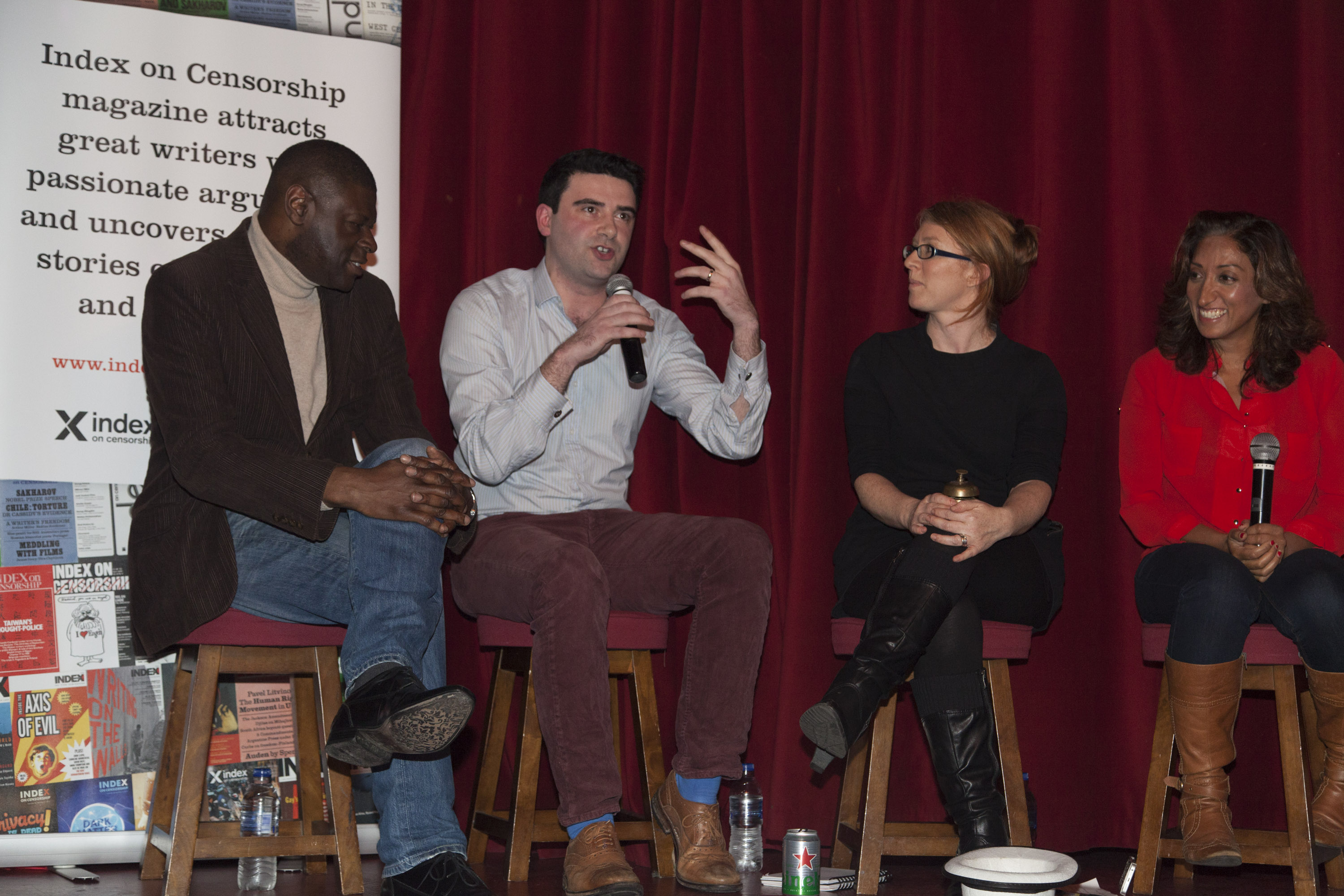

“When I went to the Loaded offices with hairy legs they told me to get out and that I could never be on the cover because apparently I’d made an effort with my nails but not my legs
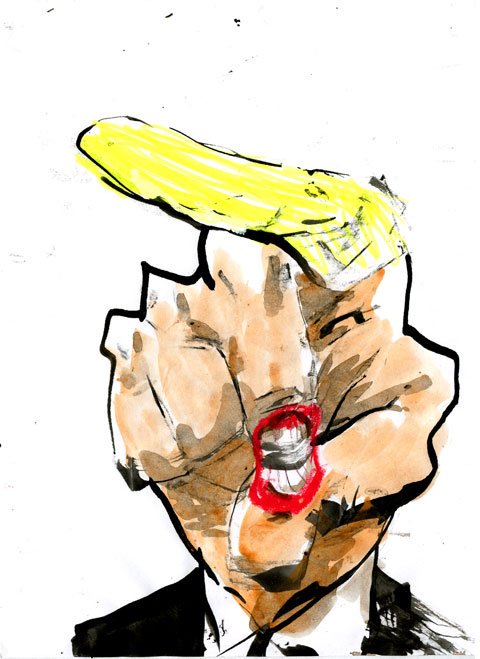
All over the world there are taboos that stop things being discussed, when a discussion might make people aware of a problem and sometimes

Should racist words and stereotypes be edited out of old films, television programmes and books? No, says Kunle Olulode, however uncomfortable they feel, they provide an insight into the past
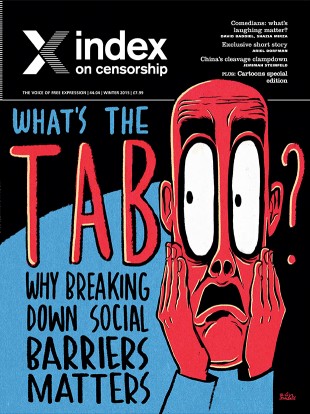
Join us to celebrate the launch of What’s the Taboo? – Index’s latest magazine featuring stories of the most controversial subjects from around the world and how we are afraid to tackle them
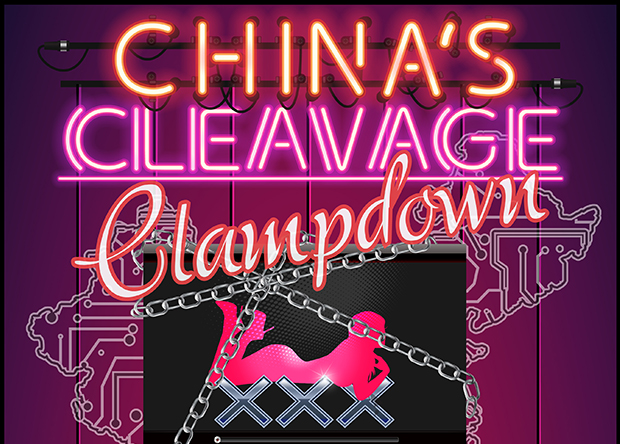
China tops the global charts for viewing porn despite strict laws cracking down on its use. Jemimah Steinfeld discusses upcoming restrictions on reading about sex and a drive to get women to cover up their cleavage

Fifty years ago, Chilean author Ariel Dorfman wrote down the seed of a story, which he then lost in his years of exile during General Augusto Pinochet’s dictatorship

Music has long been used as a form of resistance, from civil rights movements to the fall of the Berlin Wall

Societies often endanger lives by creating taboos, rather than letting citizens openly discuss stigmas and beliefs
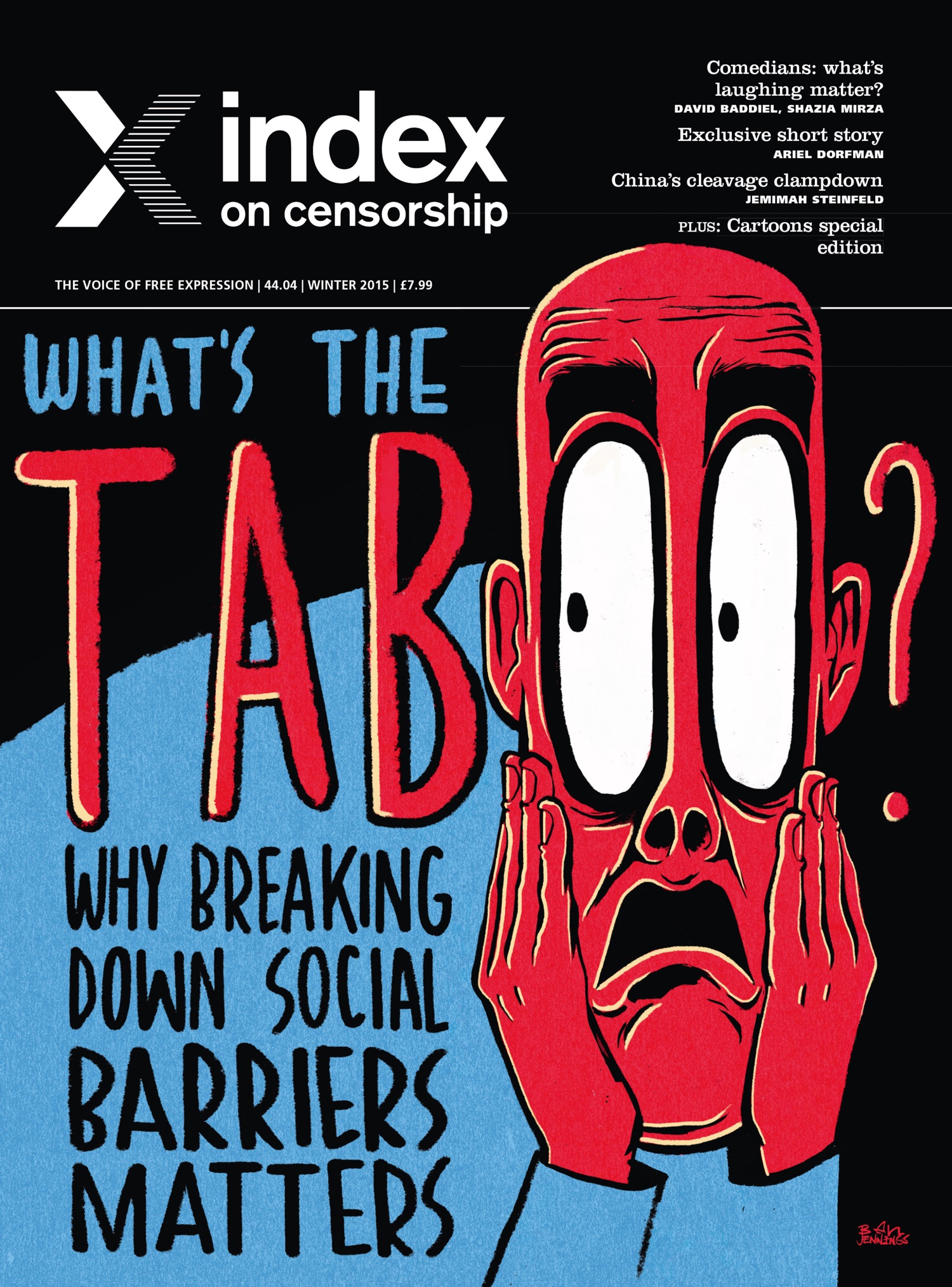
Throughout history, taboos have been established to limit and control society, and help to retain a status quo. “Best not mention it” is the nodded instruction to put something off limits in the family living room. In the 20th century, in the UK, societal disapproval would be rained down on those who ate something other than fish on Fridays, or children who played outside on a Sunday, or an adult who didn’t wear a hat to church. And in the US today the Westboro Baptist Church tells its female followers that it is forbidden for them to cut their hair. But why? Who decided these were the rules, and how do they change?

What’s taboo today? It might depend where you live, your culture, your religion, or who you’re talking to. The latest issue of Index on Censorship magazine explores worldwide taboos in all their guises, and why they matter.
A quarterly journal set up in 1972, Index on Censorship magazine has published oppressed writers and refused to be silenced across hundreds of issues.
The brainchild of the poet Stephen Spender, and translator Michael Scammell, the magazine’s very first issue included a never-before-published poem, written while serving a sentence in a labour camp, by the Soviet dissident Aleksandr Solzhenitsyn, who went on to win a Nobel prize later that year.
The magazine continued to be a thorn in the side of Soviet censors, but its scope was far wider. From the beginning, Index declared its mission to stand up for free expression as a fundamental human right for people everywhere – it was particularly vocal in its coverage of the oppressive military regimes of southern Europe and Latin America but was also clear that freedom of expression was not only a problem in faraway dictatorships. The winter 1979 issue, for example, reported on a controversy in the United States in which the Public Broadcasting Service had heavily edited a documentary about racism in Britain and then gone to court attempting to prevent screenings of the original version. Learn more.